- The End of the Beginning
Our final days have been spent developing a comprehensive presentation of our observations and data. Primary topics included analyses of marketing strategy, communications, operations/logistics, procurement and more.
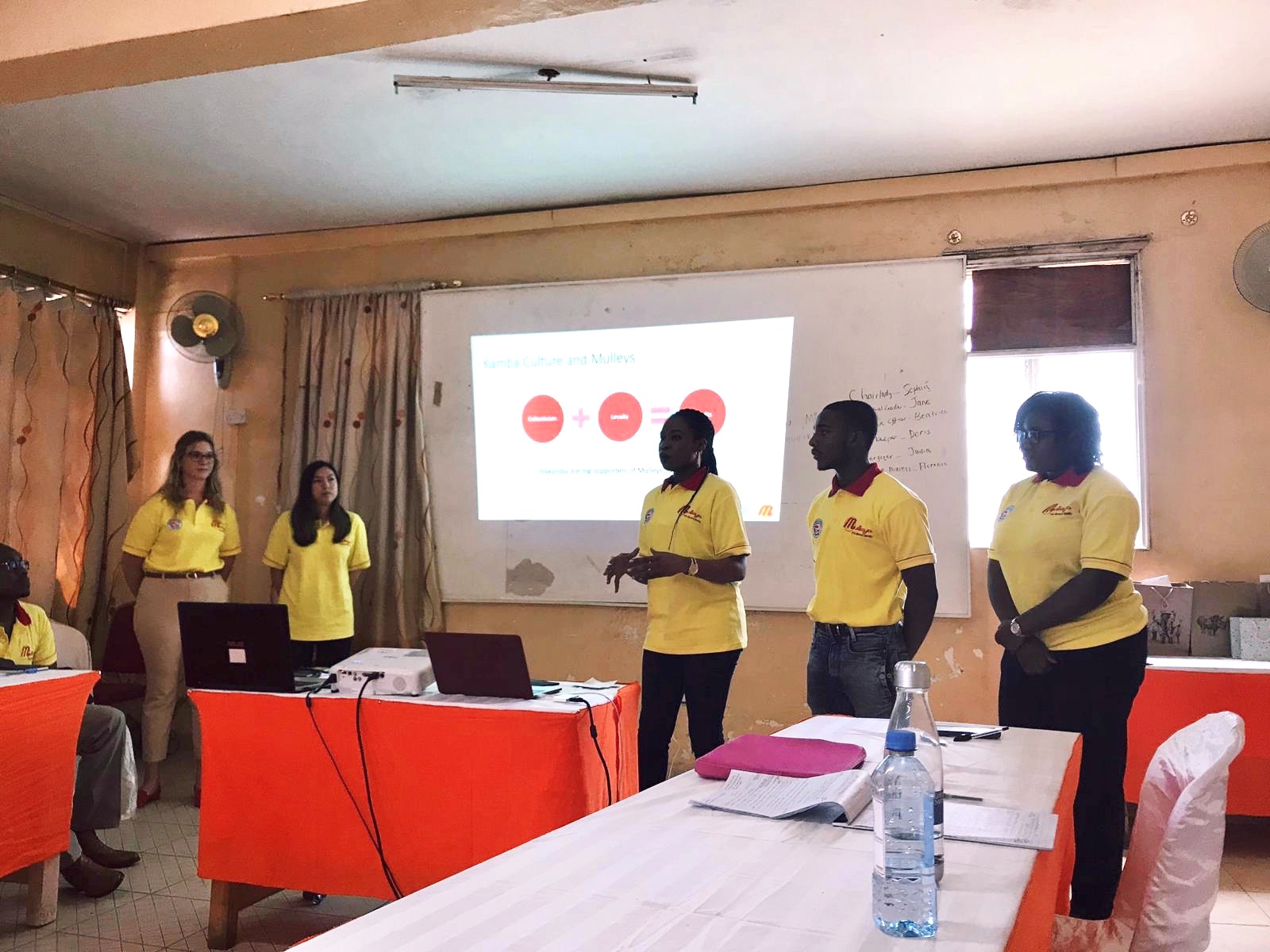
The team tried to drive home the need for Mulleys to deeply analyze and understand its corporate and marketing strategies (including people, places and procedures) in order to improve. We mentioned that from our staff interviews, an opportunity for Mulleys to strengthen the capacity of its employees is to focus on their education, communication, incentives and standardization in order to get desired outcomes from these individuals. In addition, we addressed possible improvements to store layout uniformity and presented ideas on store congestion relief as well as product placement and labeling. The last key point was focused on the procurement process and the pros and cons of increasing collaboration between store managers and procurement leads as well as between suppliers and store managers to improve efficiencies and increase product knowledge.
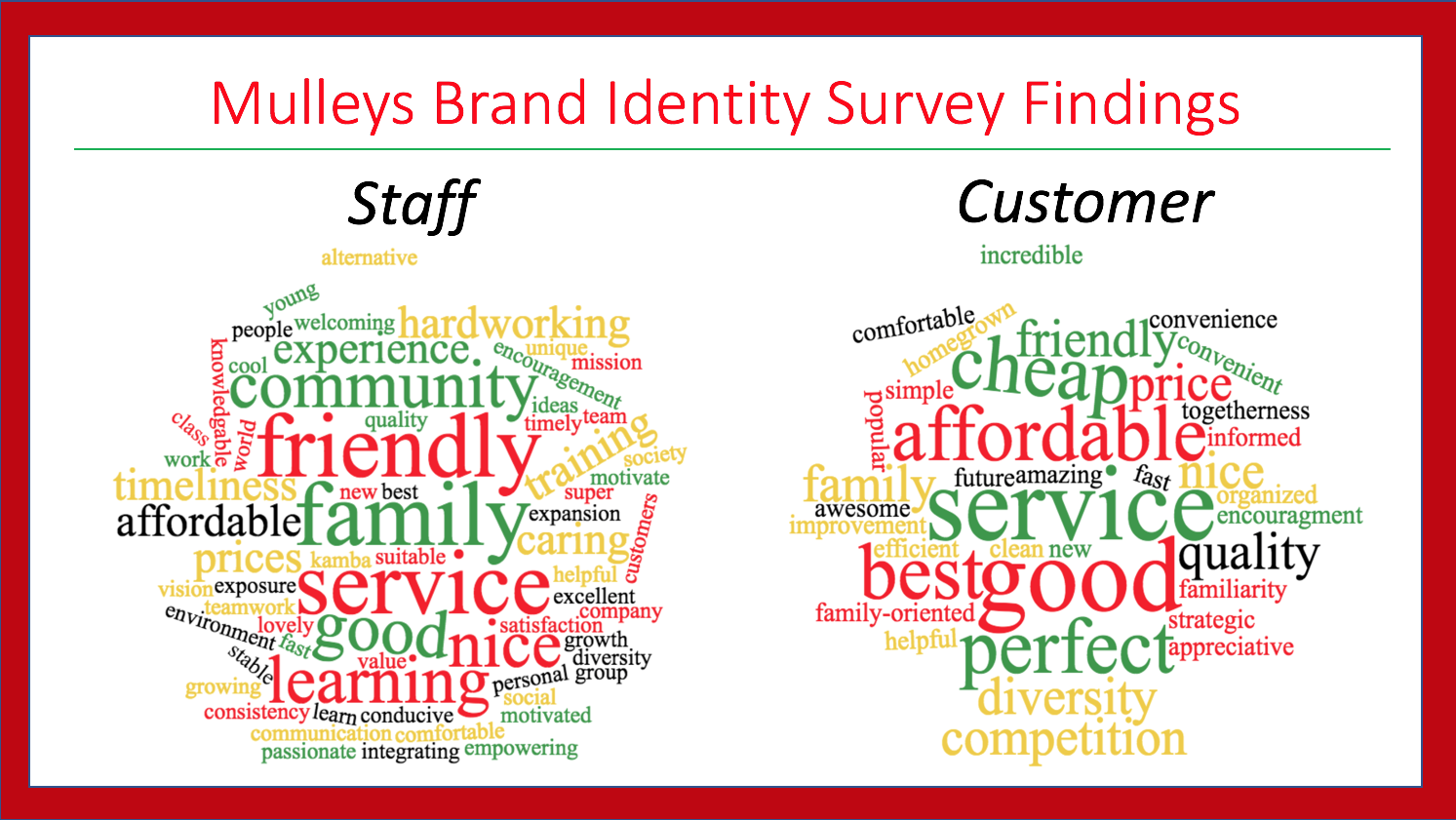
Some of the takeaway lessons for the future include the business becoming proactive vs. reactive, encouraging constructive feedback from employees and customers, and ensuring that every staff member has an aligned vision for the company. Leadership should also invest time in strategic planning for the future and embrace that change is necessary for continued growth.
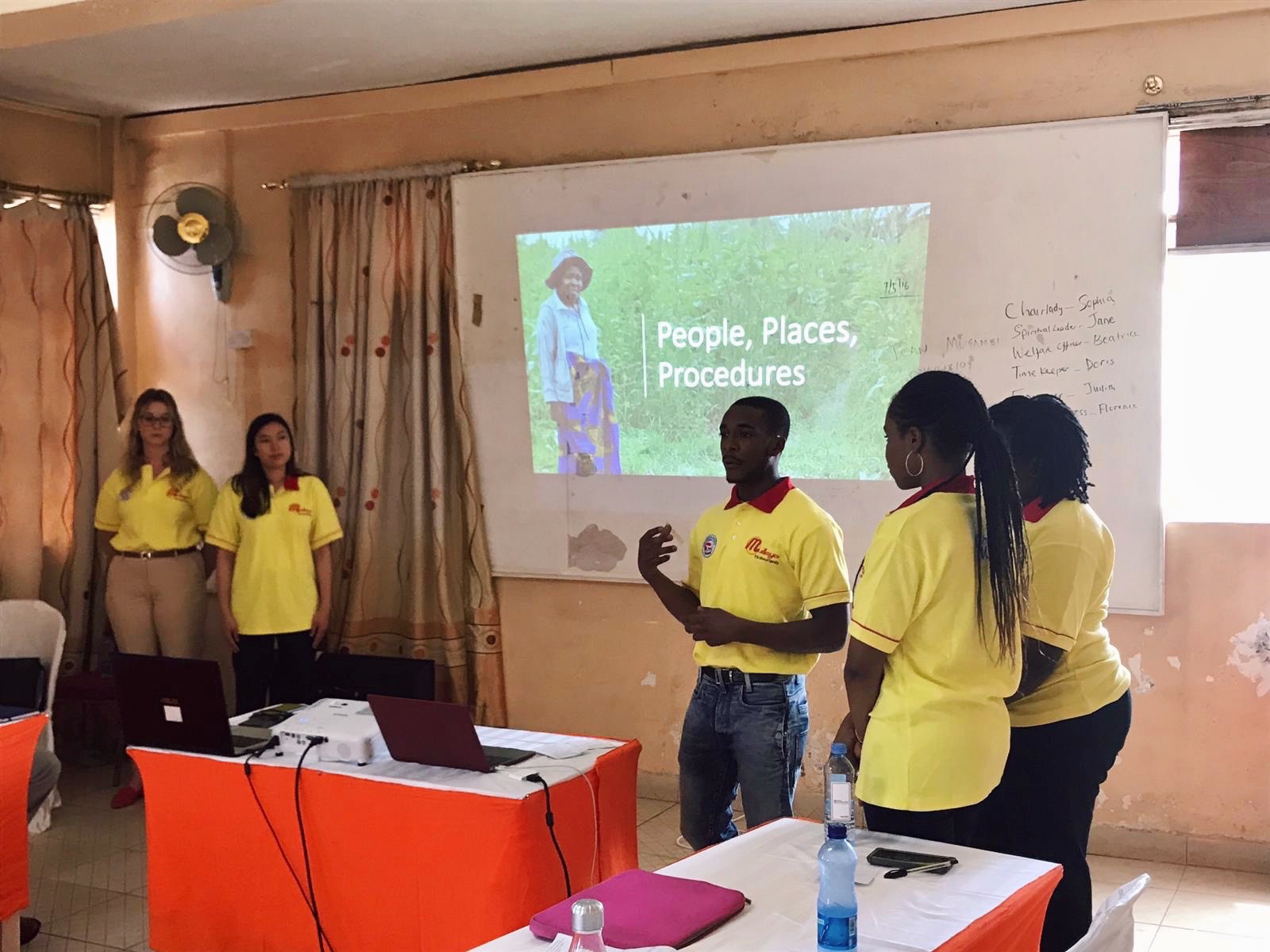
After our presentation today, we received some feedback from the company on how to improve. Moving forward we will conduct a further in-depth analysis of our data and delve deeply into literature research. By the end of the class, we will have created a video, case study and conducted a poster presentation at Cornell.

All of the work our team was able to accomplish would not have been possible without the help of the Mulleys family, staff and customers. We specifically want to thank Kevin, Eric and Duncan for their generosity, kindness, hospitality, and good company. Without their time and assistance, and the cooperation of other management departments, we would not have been able to achieve all that we did. Our experience here has been invaluable and the memories created unforgettable. Bottoms up to creativity, dreams, friends, wealth, and most of all, family. Asante Sana!
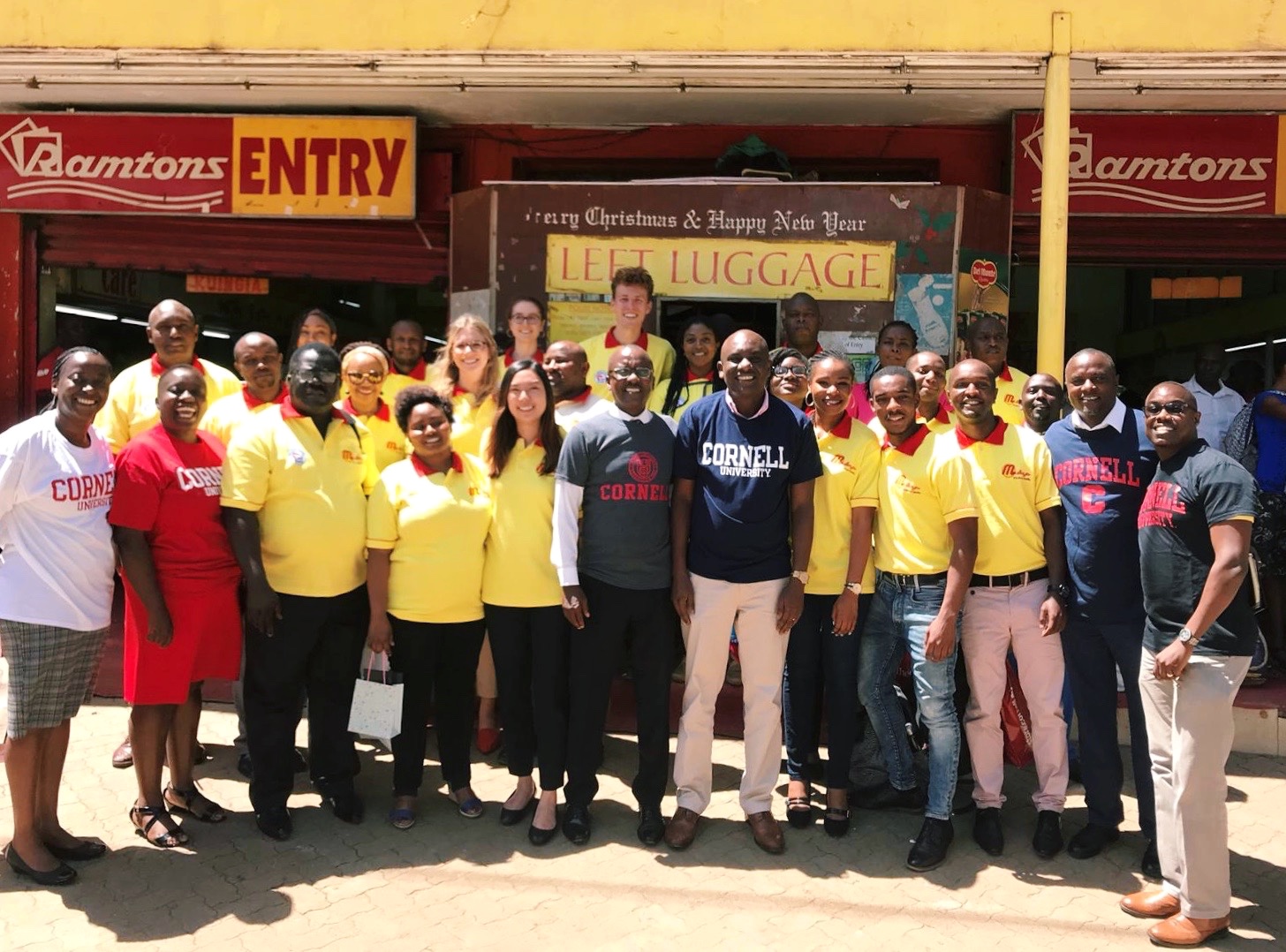
- Research: Supply Chain Evaluation, Customer & Staff Surveys
Over the past few days, we have designed a short survey and began interviewing customers, staff, and suppliers of Mulleys. The goal of the surveys is to gain insight into customer, staff, and supplier experience, relationships, and more.
-
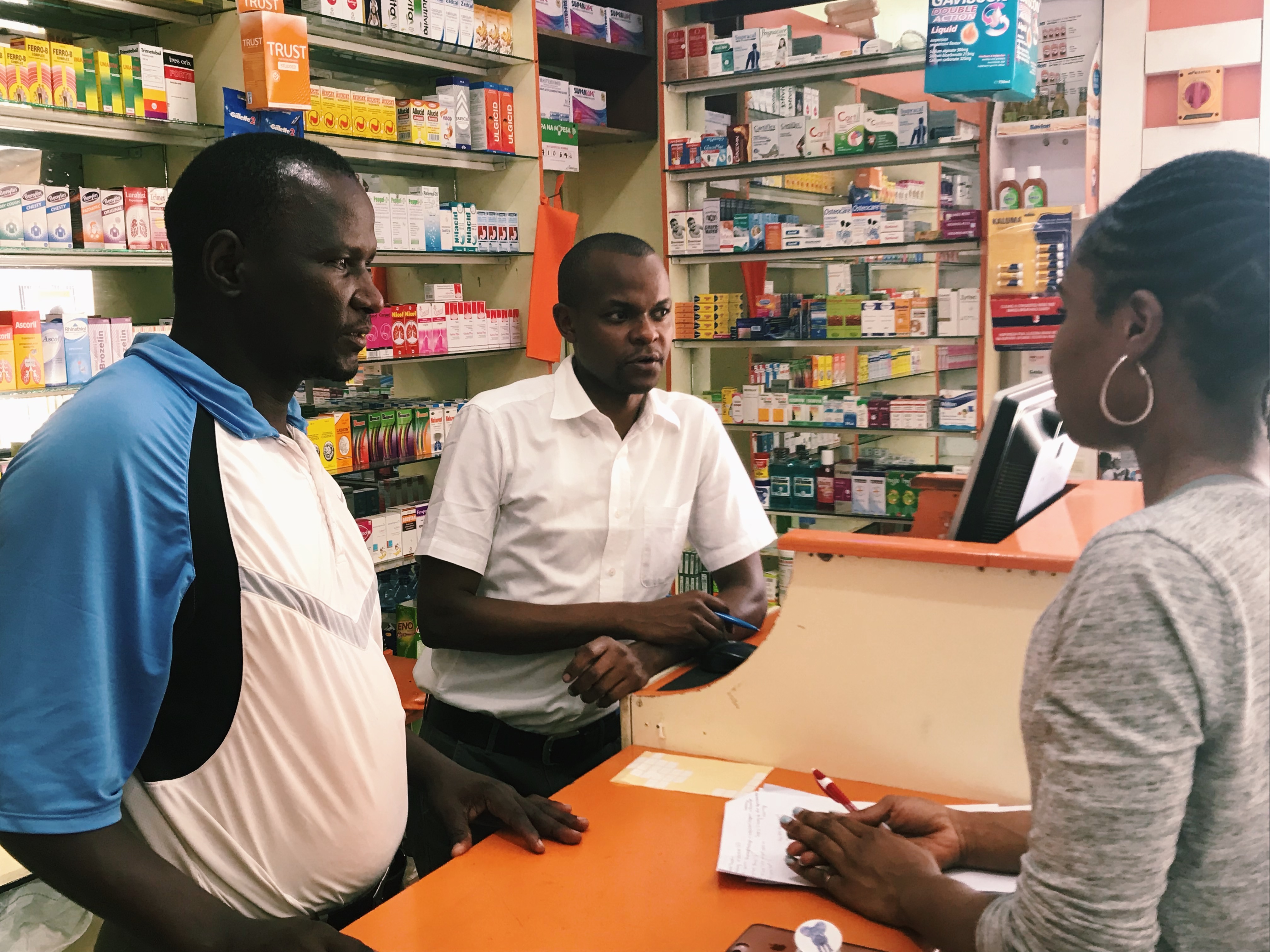
-

-

\ -
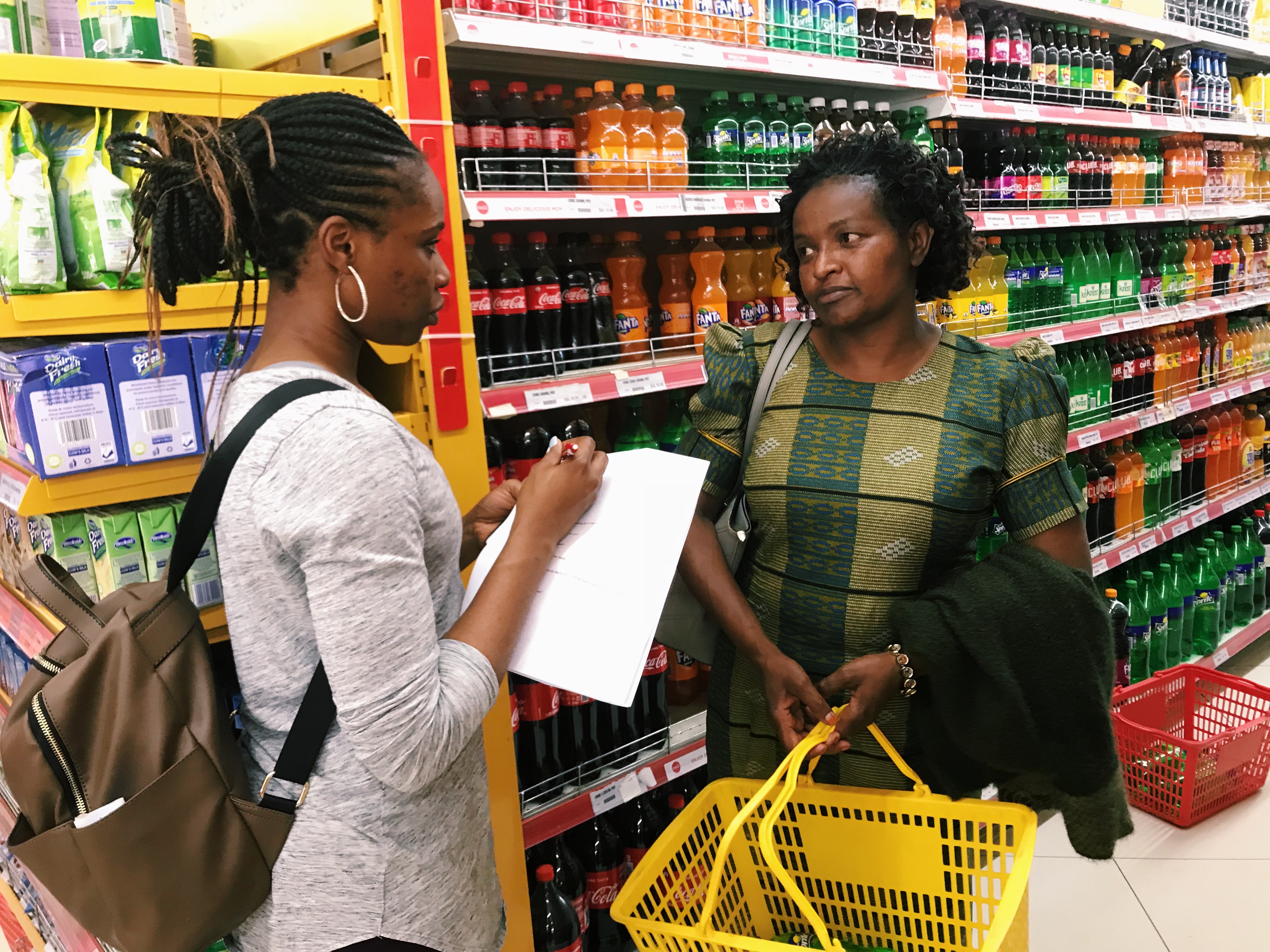
-

-

We also visited the Malili school, a particular supplier that holds a special place in our hearts. We learned how the all girls boarding school not only grows their own food to be served to students, but how they also are a supplier of fresh produce including cabbage, spinach, and capscicum for Mulleys Supermarkets. The high school girls gave our team a tour of their farm and taught us how they practice in the field what they learn in Agricultural Science class by planting crops and making an impact.
Moreover, the team visited another Mulleys location named “Highway” where we spoke with store manager Denson and had the chance to learn about his experience with the company over the past 7 years. He began his career with Mulleys as a cashier, and slowly worked his way into management. His positive experiences emphasized the company’s commitment to employee growth and training, and aligned with much of the feedback received from various other staff members. As our team has conducted research across store locations, several employees have told us similar stories of beginning in lower level staff positions and having the opportunity to work their way up to management roles. This speaks volumes to the training, leadership and opportunity Mulleys provides staff of all roles.

We look forward to aggregating and analyzing the data we have collected across these stores to create a formal presentation for the directors and a eventually a case study when we return to Cornell.
-
- Market & Value Chain Research
Welcome back to the Mulleys team blog! Since the last post, our team has been busy coordinating with the Mulleys board of directors to begin rigorous data collection and research analyses to best fulfill our role here in Kenya.
Since our meeting with the Directors of Mulleys we were able to narrow our focus to the supply chain management and marketing of fresh goods such as bakery, produce, and meat products. Understanding the entire value chain of these diverse products has taken us on an exciting adventure spanning numerous visits to store suppliers of local produce, meat, and fish in addition to the Mulleys offsite bakery, distribution warehouses, and wholesale operations.

At African Green Farm, we toured fields of tomatoes, spinach, squash, sweet potato, maize, various fruits and other vegetables and mixed livestock. The operation emulates sustainability in that it utilizes no fertilizer, little to no chemical spraying, strategic planting to minimize erosion, and more. New technology, introduced courtesy of the hard work of Isabelle’s son and his wife, will allow the farm to use recycled biomass to dry foods and begin processing their own goods for sale. The various other operations we had the privilege of visiting were equally as impressive in their own unique way. After the tour, we shared mandasi (Kenyan doughnut), cassava chips, tea and juice, once again demonstrating the incredible hospitality we have experienced in Kenya thus far.
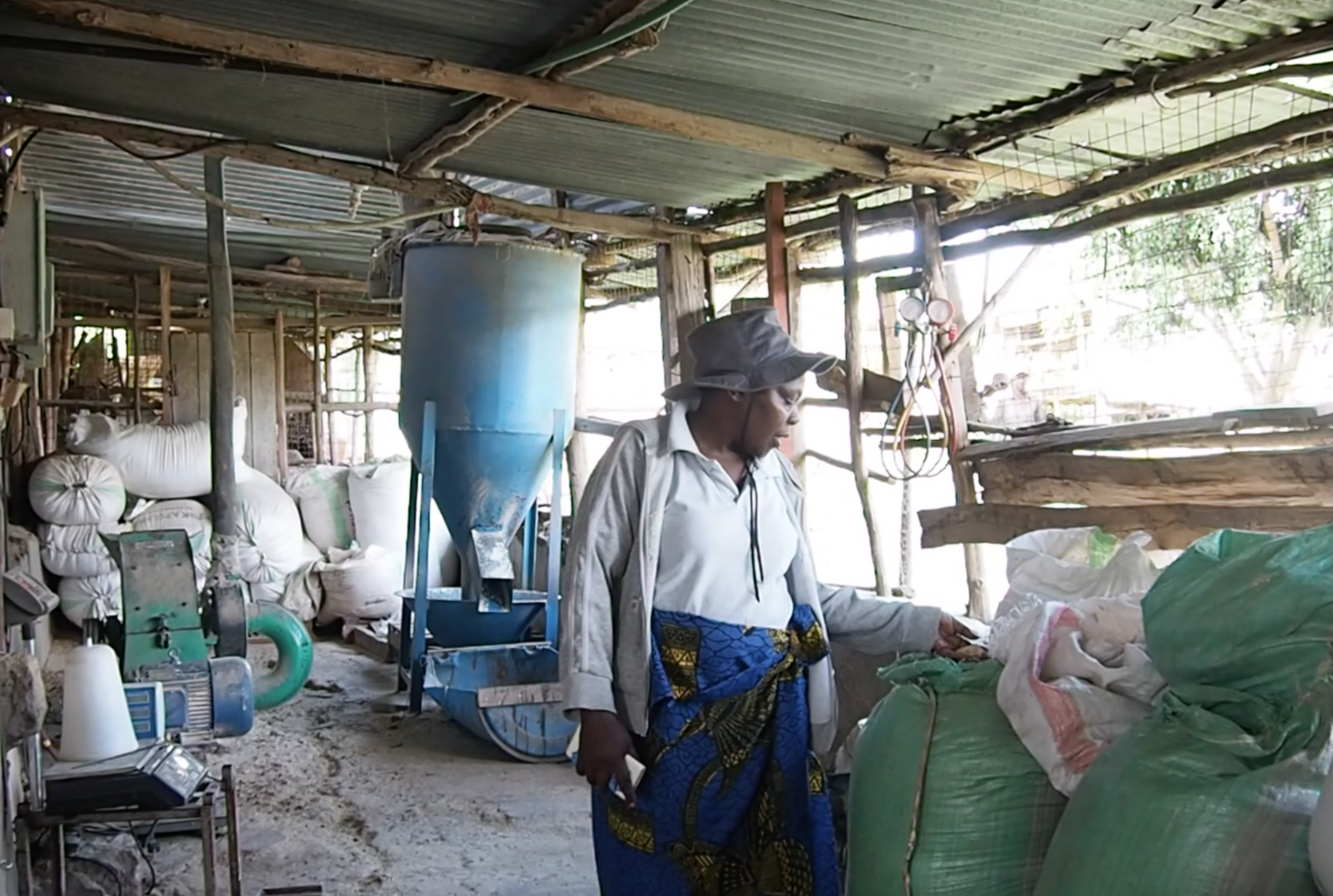
Our team has also gained feedback pertaining to our research from outside stakeholders. We had the fortunate privilege to meet with a group of individuals from the International Center of Tropical Agriculture, Global Alliance for Improved Nutrition, Smart Logistics, Purdue University and Green Without Borders. These partners provided our team useful insight into the broader context of nutrition, fruit and vegetable access, healthy value added goods, and more in Kenya.
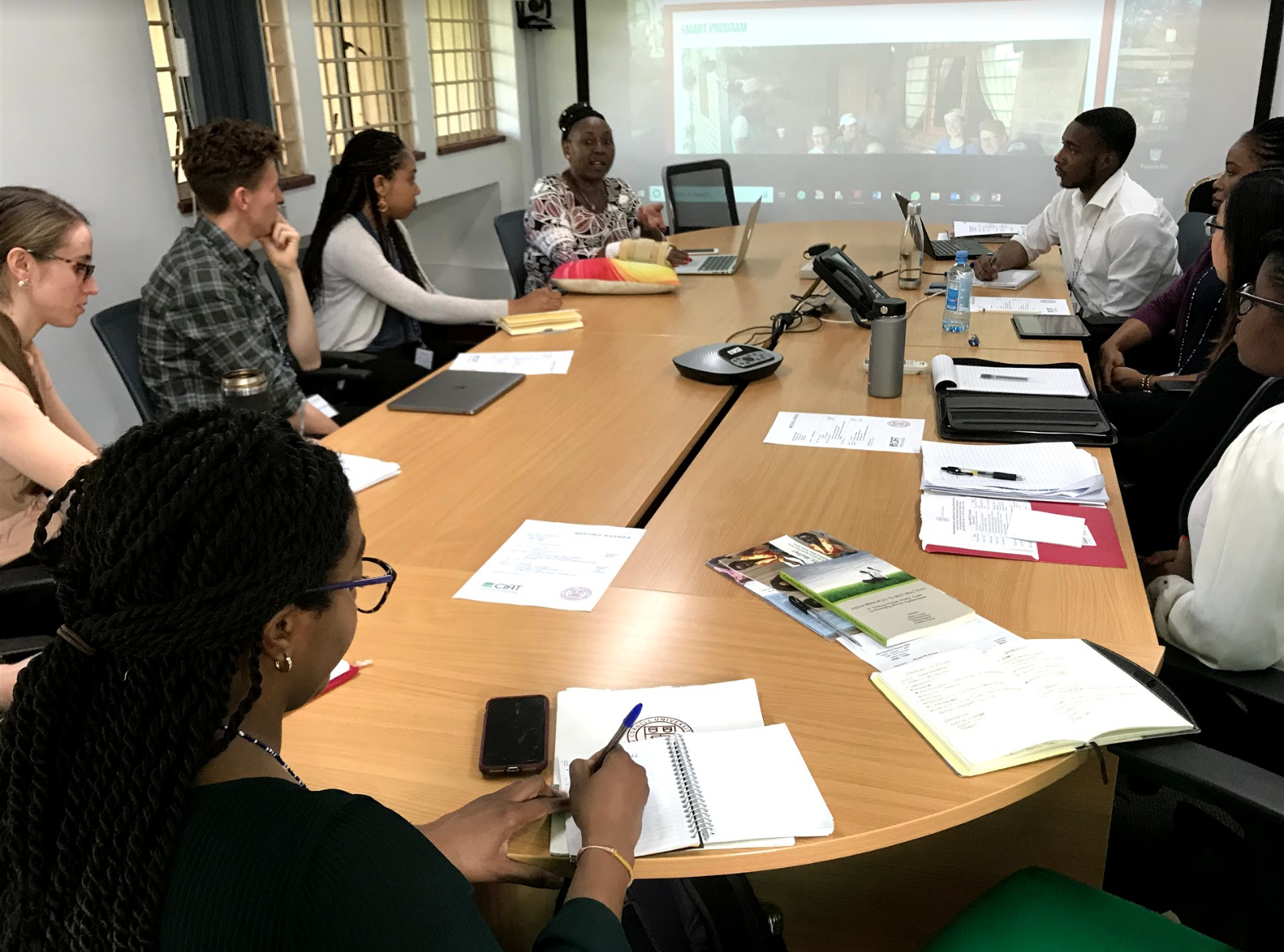
During this array of visits, we have gained useful information about sustainable farm practices, production challenges, and logistics of Mulleys. We’re extremely grateful to the accommodating directors, staff, family and suppliers of the company who have worked hard to assist us in coordinating these meetings and providing us with any information we need.

- Mulleys Supermarkets – It’s All About Family
Karibu Sana: Welcome to our Kenya blog! This welcome comes a few days late because we spent our first full day travelling around Nairobi and getting to know the neighborhood. Today was our first introduction to Mulleys and over the course of about 10 hours, we learnt a lot about the company and why it really is about family. When we met with Yvonne Mweu, a branch manager at a Mulleys in a local market area in Machakos County, she was excited to show us her “shop” fondly called “Mtaani.” She gave us our first real insight into Mulleys.

Peter Mulei was a dedicated wholesale trader who opened the first Mulleys shop in Machakos, Kenya. After his passing in 2010, his children wanted to ensure his legacy lived on by building a generational family business. Nine years later, the family now runs an operation of 10 supermarkets, 3 wholesale centers, 2 distribution centers, 3 gyms/spas, 2 restaurants, a farm and has over 1,500 employees. The supermarkets are located in prime locations around Nairobi and Machakos County and each store is tailored to meet the needs of its surrounding community. Beyond their grocery offerings, the stores also sell kitchenware, clothing, furniture, luggage and electronics.

The company’s value of community is demonstrated in their partnerships with customers. Many individuals who rely on Mulleys products also serve as local suppliers for produce and meat. To ensure consistency of supply, Mulleys supplements this local supply with goods from their family farm. They have 5 staple commodity products that are their private label brand. These include rice, sugar, flour, bread, and tissue paper. To serve consumers better, they have more recently implemented phone orders and delivery services. Additionally, in order to take advantage of Kenya’s large mobile money market— the largest in the world— Mulleys also provides the M-Pesa mobile money service.

The company already has avenues for social impact like sponsoring orphans and marathons. However, they also want to strengthen their partnerships with customers, staff and the community in order to better society. Over a traditional Kenyan lunch, our team talked with executive directors and the CEO of Mulleys about their history and their future direction. Mulleys’ current mission is to increase market share while improving productivity and sustainability in the rapidly developing market.

All in all, it was a fantastic experience and we gained a greater understanding of Mulleys and how the company operates. We are excited to work with Mulleys Supermarkets to provide insights into addressing their current challenges and ensuring continued success in the future.

-
Subscribe
Subscribed
Already have a WordPress.com account? Log in now.

